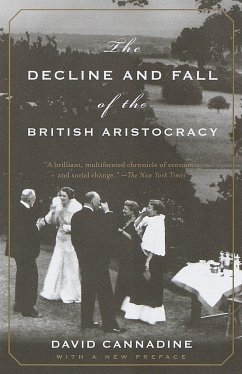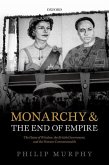"A brilliant, multifaceted chronicle of economic and social change." --"The New York Times "No praise can be too high." --"The New York Review of Books At the outset of the 1870s, the British aristocracy could rightly consider themselves the most fortunate people on earth: they held the lion's share of land, wealth, and power in the world's greatest empire. By the end of the 1930s they had lost not only a generation of sons in the First World War, but also much of their prosperity, prestige, and political significance. Deftly orchestrating an enormous array of documents and letters, facts, and statistics, David Cannadine shows how this shift came about--and how it was reinforced in the aftermath of the Second World War. Astonishingly learned, lucidly written, and sparkling with wit, The Decline and Fall of the British Aristocracy is a landmark study that dramatically changes our understanding of British social history. "Cannadine has produced a great book, one that is comprehensive in its scope, and of critical importance." --"London Review of Books








